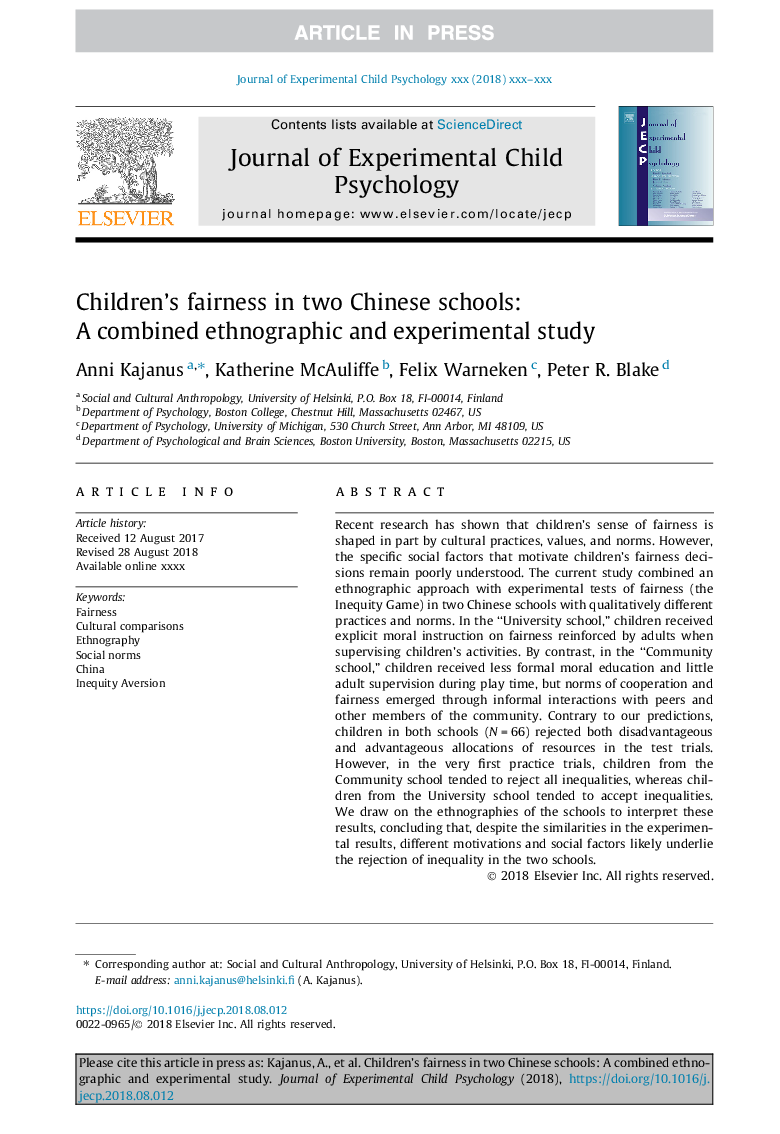| Article ID | Journal | Published Year | Pages | File Type |
|---|---|---|---|---|
| 11031386 | Journal of Experimental Child Psychology | 2019 | 15 Pages |
Abstract
Recent research has shown that children's sense of fairness is shaped in part by cultural practices, values, and norms. However, the specific social factors that motivate children's fairness decisions remain poorly understood. The current study combined an ethnographic approach with experimental tests of fairness (the Inequity Game) in two Chinese schools with qualitatively different practices and norms. In the “University school,” children received explicit moral instruction on fairness reinforced by adults when supervising children's activities. By contrast, in the “Community school,” children received less formal moral education and little adult supervision during play time, but norms of cooperation and fairness emerged through informal interactions with peers and other members of the community. Contrary to our predictions, children in both schools (Nâ¯=â¯66) rejected both disadvantageous and advantageous allocations of resources in the test trials. However, in the very first practice trials, children from the Community school tended to reject all inequalities, whereas children from the University school tended to accept inequalities. We draw on the ethnographies of the schools to interpret these results, concluding that, despite the similarities in the experimental results, different motivations and social factors likely underlie the rejection of inequality in the two schools.
Related Topics
Social Sciences and Humanities
Psychology
Developmental and Educational Psychology
Authors
Anni Kajanus, Katherine McAuliffe, Felix Warneken, Peter R. Blake,
